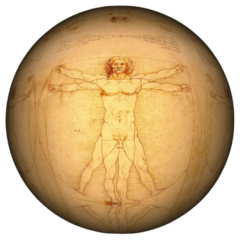What was the Tunguska event? On June 30, 1908, a devastating explosion equal to 1000 Hiroshima bombs destroyed 2000 square km or 770 square miles of forest in the Tunguska area, in Siberia, Russia.
Continue reading “What was the Tunguska event?”Category: Uncategorized
Is there any archeological evidence of the Nativity of Christ?
Is there any archeological evidence of the nativity of Jesus?
The nativity of Jesus, is described in the biblical gospels of Luke and Matthew. The two accounts agree that Jesus was born in Bethlehem, Judaea, that his mother, Mary, was engaged to a man named Joseph, who was descended from King David and was not his biological father, and that his birth was caused by divine intervention.
Is there any evidence of the birth of Jesus?
There is no historical evidence to allow a definitive date to be determined, but the date has been estimated through known historical events mentioned in the Gospels of Matthew chapter 2 and Luke chapter 2 or by working backwards from the estimated start of the ministry of Jesus. Jesus was born in Bethlehem in the reign of King Herod who was a real historical person. There is no evidence of Herod’s plot, the massacre of the innocents, and neither for the the star of Bethlehem. According to Luke, When the time of the birth drew near, Caesar Augustus commanded a census of Roman domains but there is no evidence for that.
FURTHER READING AND SUGGESTED VIDEOS:
How historically accurate are the Muhteşem Yüzyıl Kösem series?
The Muhteşem Yüzyıl: Kösem series is a popular Turkish historical drama that focuses on the life and reign of Kösem Sultan, an influential figure during the Ottoman Empire’s 17th century. While it provides engaging storytelling and captivating characters, its historical accuracy is a subject of debate.
Continue reading “How historically accurate are the Muhteşem Yüzyıl Kösem series?”Ancient Egypt dwarfs and pygmies amazing facts
In ancient Egypt, dwarfs and pygmies held a unique and respected position in society. They were often employed as entertainers, personal attendants, and even high-ranking officials in the royal court. These individuals were not discriminated against for their size; instead, they were considered to possess special attributes and abilities.
Continue reading “Ancient Egypt dwarfs and pygmies amazing facts”Unearthing the Mysteries of Jericho: Archaeological Clues to the Israelite Conquest
In the annals of ancient history, the conquest of Jericho by the Israelites stands as a pivotal moment. The biblical account in the Book of Joshua vividly describes the walls of Jericho crumbling down after the Israelites encircled the city for seven days, blowing trumpets and shouting.
Continue reading “Unearthing the Mysteries of Jericho: Archaeological Clues to the Israelite Conquest”The Ancient Chemist: Tapputi Belatekallim, the First Perfume Maker
In the annals of history, there are pioneers whose innovations transcend time, leaving an indelible mark on civilization. Among these trailblazers is Tapputi Belatekallim, an ancient Mesopotamian chemist who is often hailed as the world’s first recorded perfume maker.
Continue reading “The Ancient Chemist: Tapputi Belatekallim, the First Perfume Maker”How did Harappan civilization come to an end?
The Harappan civilization, also known as the Indus Valley civilization, thrived around 2600 to 1900 BCE in what is now Pakistan and northwest India. While the exact reasons for its decline remain uncertain, scholars have proposed several theories.
Continue reading “How did Harappan civilization come to an end?”How was the practice of medicine in ancient Sumer?
How was the practice of medicine in ancient Sumer?
The practice of medicine in ancient Sumer, a civilization that thrived around 4,000 years ago, was based on the medical knowledge and beliefs held by the Sumerians, who attributed illnesses to supernatural causes, primarily demons, and gods.
Continue reading “How was the practice of medicine in ancient Sumer?”Which was the oldest continuous civilization on Earth?
There is archaeological evidence confirming that the oldest continuous civilization on Earth is the Indigenous Australian civilization, extending back over 65,000 years. They were among the first humans to migrate out of Africa, across the coastlines of India and Asia until reaching the shores of Australia.
The Australian Aboriginal persons are direct descendants of the first modern humans to leave Africa, without any genetic mixture from other races so far as can be seen at present. More than 250 Australian Indigenous languages exist. English borrowed more than 400 words from Aboriginal languages such as koala, kangaroo, or boomerang. The Dreamtime is a general term used to describe the complex network of Aboriginal spiritual beliefs, creation, and existence on earth. Torres Strait Islanders are united by their connection to the Tagai. The Tagai is the spiritual belief system that connects people to the order of the world, stating that everything has its place. Aboriginal Australians were the first to use the eucalyptus plant as medicine for cough.
Continue reading “Which was the oldest continuous civilization on Earth?”Ptahhotep Teachings Super Facts
Ptahhotep, an ancient Egyptian vizier, wrote one of the oldest books, a book of maxims, around 2400 BCE. The maxims offer advice on how to live a successful and virtuous life, covering topics such as respect for authority, proper behavior, and the importance of education.
Continue reading “Ptahhotep Teachings Super Facts”
